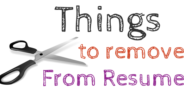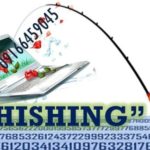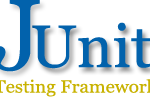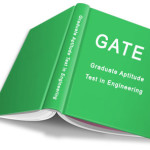Your CV speaks loud, avoid using these things in your CV/Resume’.

Going for a job interview? Your CV needs to have necessary information with removal of unnecessary contents and projection of all information in a systematic way to make it an eye catcher for the interviewer. This necessary information should be restricted to your personal, academic, professional and other basic detail. Here we know how you draft a simple, easy to understand and attractive CV. First impressions matters the most, and the first impression that a potential employer will have of you, is dependent on how you present your resume.
Studies reveal that a recruiter only spends less than ten seconds looking at a resume, so it is imperative that it makes the right impression. With an increasingly competitive job market, a professional resume with just the right amount of information, is what would catch the attention on any recruiter. It is such a resume, crafted in a concise manner, that will stand out amongst the countless other resume that potential employers will be sifting through, giving you the best possible chance of getting their attention.
Here are some distractors which mean nothing to the recruiter while scrutinising your resume.
Summary Statement instead of Objective – Objective statements need to be replaced with a personalised summary statement that would serve as an elevator pitch. This should be a well-crafted brief paragraph that give insights on what you are best at doing, interests and the value- add you would be contributing to your prospective employer. Summarise your job goals and qualifications for the reader.
Inappropriate E-mail / Contact info – Contact details, email id in specific, should be professional ones. In that, addresses with crazy names or ones that are offensive in nature would have to be saved for personal use only – definitely cannot be used when you are seeking a job. Avoid using, ‘funky, crazy, love, stylish’ or other unprofessional words in email id mentioned in CV. It would be good to have an id exclusively for your job-search and networking activities. Avoid putting multiple phone numbers. Double check your resume, make sure it carries your personal email id and contact number, and not those from your current workplace.
Relevant Personal Information – The resume should focus on your professional capabilities. Keeping this in mind, personal details such as ethnicity, and religious / spiritual beliefs can be excluded. Unless you are a fresh graduate personal hobbies have no place in the resumes, unless they are directly related to you line of work. These are of no value- add to experienced professionals while seeking a job, unless asked specifically by the prospective employer.
Avoid Tables and Images – Every organization adapts an online applicant tracking system, known as an ATS system. Embedding tables or images in your resume, content of any format in the the actual Header and Footer sections of the Word document, can scramble the application in these systems. Hence avoid all of these.
Maintain Uniform Font – Arial, Calibri, Cambria, Tahoma, Book Antiqua or Franklin Gothic, are some the fonts one should be choosing from while crafting the resume. These are fonts that are easy to read and would be picked up easily by any organisations’ ATS as well. Every employer would need a version of your resume that can be easily uploaded, deconstructed and stored in their online ATS. Hence keep any creative design, (if it is part of your job) for your online portfolio only.
Focus on Related Information – Be focused while crafting the resume. Any information that is irrelevant to your target job goals would have no place in the resume. If it cannot be linked as a contributor or enhancer of your professional skill sets, it is not going to be of any use to the recruiter. Do not digress.
Focus on the Present – For an experienced professional, any experience outside a 15 year time period is considered too old and is not given any weightage. List your career progression in the reverse chronological order, as is preferred by most recruiters. Removing dates from any degrees, certifications or awards that fall outside that 15-year window is yet another suggestion. Fresh graduates and entry level professionals need to highlight their education and relevant achievements, internships with a brief outline, and any leadership skills and professional skills developed in the college days. Most often than not, we find resumes still carrying details of higher education and the achievements there off. It is the most recent work experience that any recruiter would focus on and how relevant it is for the position one is being considered for.
Although 10 seconds comes across as a cursory glance, it is this one glance that could have a huge impact on your career. Your resume is a very important document and it is through this important piece of document that the recruiter gets to know you, the first impression that he builds on you, and decides whether or not to shortlist you as a prospective candidate. Spend quality time on crafting your resume detailing only the most crucial information giving no room for irrelevant details. Include keywords relevant to your profession and industry that could highlight your resume on online searches. Remember you resume is the most important tool you have in hand to secure that coveted job.

 Currency Convertor
Currency Convertor Post an article
Post an article Covid19 Updates
Covid19 Updates Abhishek Sharma
Abhishek Sharma
 sending...
sending...




